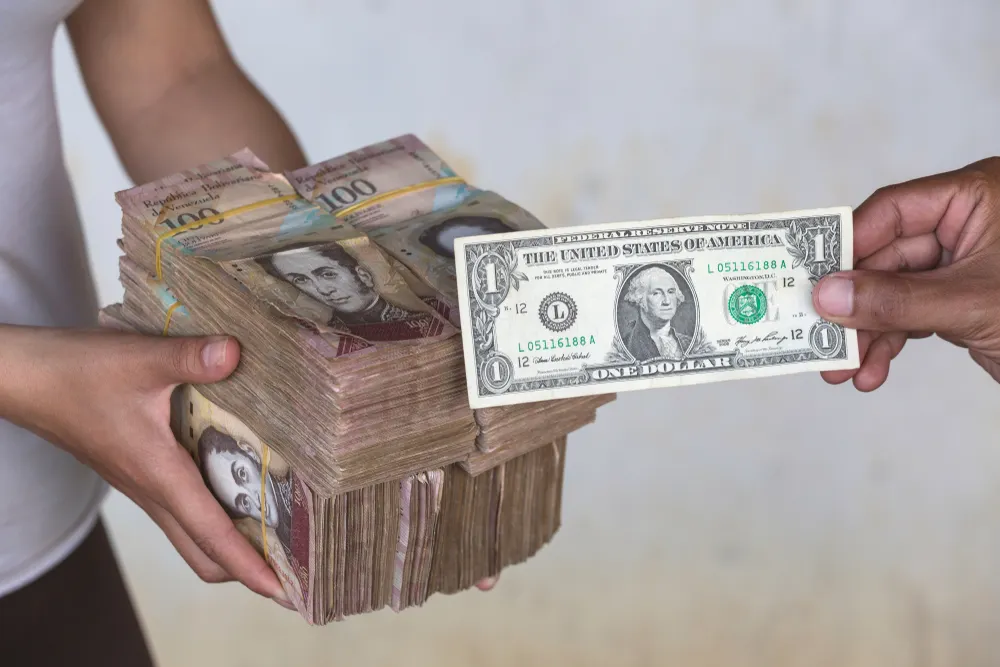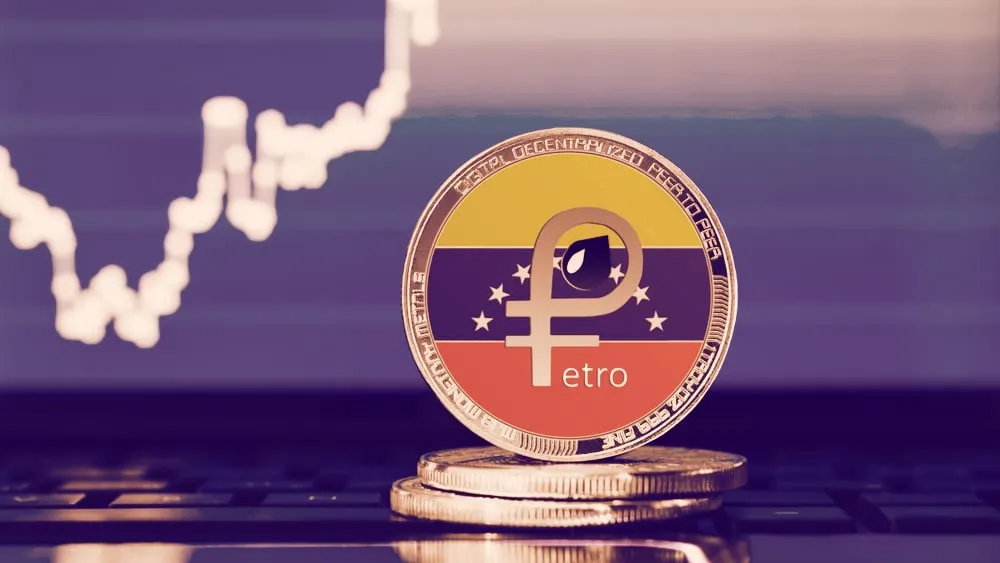Venezuela’s monthly minimum wage was slashed from $6 to $2 last week after its national currency, the bolívar, crashed yet again. Some say that recent government handouts of Petro, the state-issued cryptocurrency the government once claimed is backed by oil, are to blame; others believe the Petro to be a good omen for the country’s beleaguered economy.
From December 18 to 27, Venezuelan President Nicolás Maduro, disbursed around $30 worth of the Petro to each of the 3 million citizens that depend on the state, such as the retired, public service workers, and military personnel. If the bolívar were to stay at its current price—an unlikely bet—that’s more than a year’s salary.
Experts say the airdrop, known as “Petro Aguinaldo,” is partly to blame for the bolívar’s crash, but differ in their reasoning.

José Ángel Álvarez, president of the National Cryptocurrency Association, told Decrypt that the government made it complicated to use the cryptocurrency: Petros weren’t deposited in people’s crypto wallets, but rather “granted through the centralized mechanism of the homeland system, which made the transactional use of the token difficult,” he said.
The main way people used the Petro was to buy household items and food at stores that use the central bank’s payment system, known as BioPago. Though items were bought in Petro, BioPago would provide merchants with the equivalent value in bolívars. According to economic expert Henkel García, merchants then transferred them to dollars as soon as possible, bringing down the price of the bolívar.
The government has suspended BioPago since last Friday, citing maintenance and network upgrades. According to a report by Al Navio, the purpose of the suspension is to give the economy a chance to recover. “The main economic actors were not operational” over Christmas, it said. BioPago was due to go live on January 10, but the central bank announced that it will continue to suspend operations for the time being.
But Álvarez underplays the role of BioPago as a cause of the currency crash. “It’s clear that the volume of Petros that were exchanged for bolívars could not be the only...important incentive to significantly increase monetary liquidity in the nation,” he said.
Álvarez instead pointed to an increase of liquidity of the bolívar, which he said has almost doubled in the past two months, according to figures from the Central Bank of Venezuela. This “resulted in the pressure valve exploding in the face of what I consider to be a simple trigger: the use of Petros granted by the state to a part of the Venezuelan population,” he said.
Anibal Garrido, who teaches crypto-trading at the University of Carabobo, is a little more skeptical. He told Decrypt that government’s figures can’t be trusted: “What cannot be ignored, however, is that the boost this government project has given Venezuela’s crypto ecosystem has been immeasurable.”
Garrido said that cryptocurrencies have gone “from being a clandestine or taboo subject in the economic field,” to something enshrined in legislation. Such recognition has “unquestionably been positive for the crypto community.” Though he believes more can be done to educate the ordinary citizen, “Venezuela is a pioneer in all these issues and we are going in the right direction,” he added.
Should the link between the Petro Aguinaldo and the fall of the bolívar be established, those reliant on the bolívar—such as school teachers, civil servants, and social workers—may disagree.

